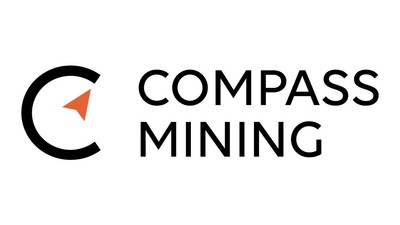Mongolian Companies Propose Increasing Export of Non-Mining Products to Japan


Ulaanbaatar, August 21, 2024 /MONTSAME/. The
Mongolia-Japan International Business Innovation Forum was held at the
“Ulaanbaatar” Hotel on August 19, 2024.
The
Mongolia-Japan Economic Partnership Agreement (EPA) entered into force in 2016. Since then, the trade turnover between Mongolia and Japan has
amounted to USD 341.6 million. As of last year, the annual trade has increased
by 112 percent.

At the Business Forum, the Director of the Department of Customer Support at the Mongolian National Chamber of Commerce and Industry, E. Badamkhorol noted in her presentation on “Mongolia-Japan Economic Possibilities, Trade, and Cooperation, ”Today, the trade turnover between Mongolia and Japan has reached USD
 716.7 million. However, the imports of Mongolia from Japan are significantly higher than the exports, with 70-90 percent of imports consisting of automobiles. To address this imbalance, it would be beneficial for Mongolia to develop its tourism sector and increase exports of non-mining products such as leather, wool, cashmere, meat, and other food products”
716.7 million. However, the imports of Mongolia from Japan are significantly higher than the exports, with 70-90 percent of imports consisting of automobiles. To address this imbalance, it would be beneficial for Mongolia to develop its tourism sector and increase exports of non-mining products such as leather, wool, cashmere, meat, and other food products”
At the forum, private enterprises expressed concerns regarding Mongolian exports to Japan. One of the major challenges that businessmen face in effectively utilizing EPA is the transportation and logistics issues. The Mongolian representatives discussed the challenges in doing business with Japan, including the need to meet quality standards, the shortage of trained professionals, the need for workforce development, and the issue of circulating capital for investments.
D. Dolgormaa, CEO of MonShibasaki Company, commented: “Our company imports semi-finished products from Japan, processes them using Japanese equipment and machinery, and then exports them back to Japan. We manufacture and supply precision parts, such as brakes, for trucks made by Toyota, Nissan, Hino, and Isuzu.”

“It’s not just our company; other Mongolian companies also supply quality goods to the Japanese market. However, due to delayed supply, we lose a lot of time. Transportation takes at least 4-6 months. The main reason for this delay is Mongolia’s landlocked position between two large neighbors. Additionally, skilled Mongolian engineers capable of producing quality products are immigrating abroad for employment.”
At the Mongolia-Japan Business and Innovation Forum, domestic enterprises highlighted that the variety of Mongolian exports to Japan has not expanded in recent years. The main challenges for Mongolian enterprises include ensuring quality standards for the Japanese market, focusing on customer satisfaction, and meeting product delivery deadlines. In other words, they need to focus on timely delivery and managing expenses.
At the Forum, the Kaizen Association of Mongolia emphasized the need to adopt Japanese principles to succeed in exporting to Japan.

The Mongolia-Japan Business Innovation Forum was jointly organized by the Mongolian National Chamber of Commerce and Industry, the Japanese International Cooperation Agency (JICA) Office in Mongolia, the Mongolia-Japan Center for Human Resources Development, and the Japanese University Graduate Association of Mongolia, with support from the “Food Revolution” National Campaign of Mongolia, the Japan Chamber of Commerce and Industry, and the Kaizen Association of Mongolia.
During the event, the Innovation HUB from Mongolia and the “Gotanda Valley Association” of Shinagawa City from Japan signed a Memorandum of Understanding (MoU) to establish an information technology consortium. The MoU was signed by the Deputy Governor of the Capital City of Mongolia, Khosbayar Luulai, and the Chairman of the Board of Directors of the “Gotanda Valley Association” Mori Yoshitaka.
Under the MoU the cooperation between Mongolian and Japanese information technology companies will be promoted, fostering collaboration in science, technology, and innovation. The agreement also aims at facilitating the joint implementation of projects, as well as the exchange of students and IT experts between the two countries.
The Mongolia-Japan International Business Forum was held for the third time, bringing together 150 representatives from Japan and around 200 representatives from Mongolia.
Additionally, a survey conducted during the Forum on “What is required to export to Japan or increase exports?” revealed the following findings:
-
Policy support: 38%
-
Soft loans: 35%
-
Focus on marketing: 15%
-
Product development: 8%
-
Market research: 5%


link






